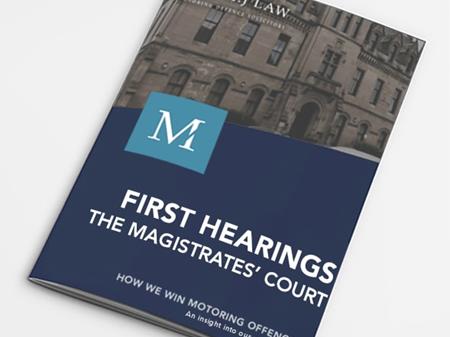Failing to Provide a Blood Sample
M.A.J Law specialise in defending criminal motoring cases. Failing to provide is a serious offence that can carry a period of imprisonment, as well as a lengthy disqualification. You may not realise that you have a full defence to the allegation and do not have to plead guilty. We regularly avoid disqualifications for clients charged with failing to provide.
We can help you with:
- Challenging the evidence
- Identifying defences
- Next steps
Failing to provide a blood sample
On (relevant date) at (relevant location) when suspected of having driven a vehicle and having been required to provide a specimen of blood for analysis pursuant to Section 7 of the Road Traffic Act 1988 in the course of an investigation into whether you had committed an offence under Section 3, 4, 5 or 5A thereof, failed without reasonable excuse to do so, contrary to Section 7(6) Road Traffic Act 1988…
Please note: If you charge sheet says anything else, it is important that you contact us immediately.
Failing to Provide - Blood - Defences
Procedure
Take a moment to think about what happened at the police station, particularly during the blood test procedure. Firstly, if you ‘point-blank’ refused to give a blood sample at the police station, you may not have been taken to the blood test room – simply processed at the front desk and then placed in a cell. You can read more about deliberate refusals below.
If you were taken to the blood test room, the police probably asked you to provide a sample of blood for analysis. This is a complicated and confusing procedure, for both the suspect and the officer. We’re often told of officers appearing unsure and having to ask for help off colleagues.
You may know by now that drug driving is a relatively new offence (introduced in 2015). When new offences are created, it’s standard practice to formally train officers about enforcement, rights, procedure and protocol. However, to save on costs, the government instead issued a nationally-approved pro forma instruction manual (known as the MGDDB form). We’re yet to meet an officer who has been formally trained on drug driving failing to provide procedures.
If the MGDDB procedure has been conducted correctly, you should recall;
- Loss of licence for a minimum of 12 months
- Two 25 page booklets being completed in front of you
- Around 30 questions
- A formal request for your sample of blood (rather than a direction)
- A request for your consent
- An indication that you do not have to give a blood sample if you do not want to
- The officer asking you if there is any reason why a sample was not given
If you do not recall some or all of the above, please contact us to discuss the court procedure.
Needle Phobia
If you have been charged with failing to provide, your charge sheet will state that you failed without reasonable excuse. If you return to the main ‘Failing to Provide’ page you’ll see an entire section discussing ‘reasonable excuse’. In short, you are not guilty of failing to provide if you have a reasonable excuse for not giving a sample. So, will a fear of needles amount to a reasonable excuse? The answer is yes.
The starting point is R (Cuns) v Hammersmith Magistrates’ Court 2016. In this case, the High Court confirmed that a genuine fear of needles can amount to a reasonable excuse. They said;
The CPS only have to disprove a reasonable excuse if there is some evidential basis provided by the defendant so that the issue is in play. If the issue has been raised with some evidential basis it is then for the prosecution to disprove it.
It is important to note that this defence does not need to be proven by the defendant; it only has to be raised as a basis. You do not need medical records confirming a preexisting fear of needles (after all, why would they?). This can be done by giving evidence yourself, or by obtaining a letter from a family member or doctor.
You only get one shot at a trial in the Magistrates’ Court, so it’s well worth doing it right first time (otherwise you’ll have to appeal to the Crown Court). – Psychotherapist
Once raised it is for the prosecution to disprove it beyond all reasonable doubt. In other words, they have to satisfy the court beyond doubt that you don’t have a fear of needles.
If you do not recall some or all of the above, please contact us to discuss the court procedure.





